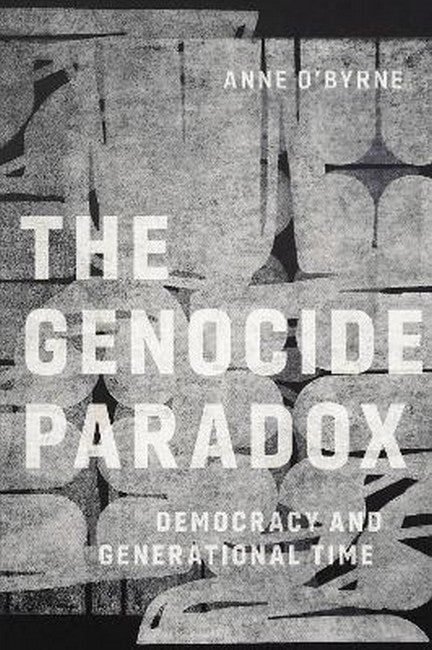Anne O'Byrne is Associate Professor of Philosophy at Stony Brook University. She is the author of Natality and Finitude (Indiana, 2010), coeditor of Logics of Genocide (Routledge, 2020), and translator or cotranslator of four books by Jean-Luc Nancy.
Request Academic Copy
Please copy the ISBN for submitting review copy form
Description
Introduction: Democracy and Genos 1 Generational Being, 10 * Genocidal Violence, 18 * Ontology and Judgment-On Method, 23 * A Note on Genos, 31 1 Genos 33 Introduction, 33 * The Tree of Porphyry: The Pleasure of Order, 36 * Linnaeus: The Sane Systematizer, 40 * Darwin: Heredity and the Temporal Order, 48 * The Unstable Clade and the Naturalization of Generational Being, 57 2 How Much Kin Does a Person Need? 64 Introduction, 64 * Absolute Belonging: Atavus and Beyond, 64 * The Life of Blood, 73 * The Evidence of DNA, 77 * Genealogical Th inking, 81 * Creating Kin, 93 * Genocide as Aenocide, 98 3 What's Wrong with Genocide? 103 Introduction, 103 * Genocide and the End of Ethics, 107 * Genocide beyond the End of Ethics, 114 * Genocidal Life: The Case of Sexual Violence, 117 * Ontology and Politics, 119 4 Democracy of Generational Beings 126 The Democratic Paradox and the Genocide Paradox, 126 * Genos and Cosmos, 131 * Genos and Demos, 136 * The Problem of Time for Democracies, 141 Conclusion: The Antigenocidal Democracy 151 Acknowledgments 165 Notes 167 Bibliography 203 Index 221
O'Byrne's book makes a significant contribution to our understanding of a number of urgent topics: democratic theory, genocide, the problem of violence, generational justice, and race and racism in relation to democracy. The book shows how each term contributes to an antigenocidal democracy that nevertheless carries the risk of falling into genocidal violence. O'Byrne's scholarship is meticulous, and her vast and transdisciplinary engagement with this difficult topic is nothing less than astounding.-- "Peg Birmingham, DePaul University" The Genocide Paradox is wide-ranging despite its brevity, written with verve and even urgency. It clarifies key assumptions smuggled into the genocide concept, and why they--and Lemkin's word itself--resonate more in today's atomized, marooned cultures than perhaps ever before.-- "H-Net Reviews" The Genocide Paradox is perceptive and powerfully suggestive. Bringing together democratic politics, time, and genocide, it illuminates troubling historical events with philosophical insights about the human condition, specifically the struggle to reconcile ourselves to a world of becoming when dependence on the past and uncertainty about the future are experienced as existential threats. A humane, thoughtful, creative work.-- "Jennifer Culbert, Johns Hopkins University"

